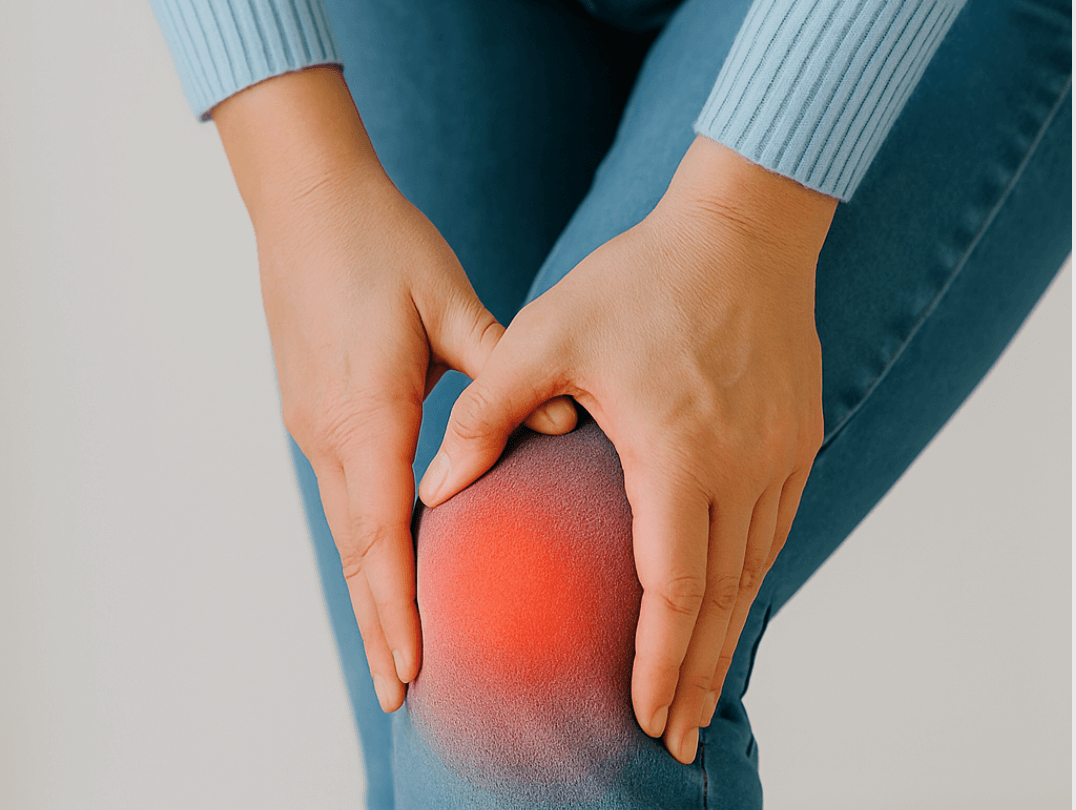
- Sep 15, 2025
- By TJICLondon
Why Does My Shoulder Hurt at Night?
5 Possible Causes Explained
If you’ve ever found yourself lying awake because of nagging shoulder pain, you’re not alone. Many people find that shoulder pain gets worse at night, especially when lying on the affected side. It’s frustrating - poor sleep can make pain feel even worse the next day, and over time it can affect your mood, energy, and daily routine.
So why does the shoulder hurt more at night? Let’s explore five of the most common causes, what they feel like, and when it may be worth seeking treatment.
1. Frozen Shoulder (Adhesive Capsulitis)
One of the most common reasons for shoulder pain at night is frozen shoulder. This condition happens when the capsule around the shoulder joint becomes thickened and tight, leading to pain and stiffness.
People with frozen shoulder often describe a deep, aching pain that feels worse at rest, particularly when lying in bed. Over time, it can become difficult to reach overhead, fasten a bra strap, or put on a coat.
The good news? Frozen shoulder responds very well to treatment. In many cases, an ultrasound-guided injection can provide relief and speed up recovery.
Learn more about treatment options here: Frozen Shoulder at Joint Care London.
2. Rotator Cuff Problems
The rotator cuff is a group of muscles and tendons that stabilise the shoulder. Injuries such as tendonitis, partial tears, or impingement can all cause pain that worsens at night.
Why at night? When you lie on your side, pressure builds up in the injured area. Even lying on your back can be uncomfortable because the tendons are compressed inside the joint. Patients often notice sharp pain when rolling over in bed or lifting the arm.
Treatment may include physiotherapy, strengthening exercises, or injections to reduce inflammation.
3. Shoulder Bursitis
Bursae are small fluid-filled sacs that cushion the shoulder joint. When one of them becomes inflamed - a condition known as bursitis - the result is pain, swelling, and reduced mobility.
Because bursitis pain is aggravated by pressure, it often feels worse when lying on the affected shoulder. The area may also feel warm or tender to touch.
Anti-inflammatory medication, physiotherapy, and ultrasound-guided injections can all help settle bursitis.
4. Shoulder Arthritis
Arthritis doesn’t only affect the knees or hips - it can also develop in the shoulder. As the cartilage that cushions the joint wears away, bones begin to rub together, leading to pain, stiffness, and sometimes grinding or clicking noises.
Arthritis pain often flares at night, partly because lying still allows inflammation to build up. People with arthritis may also notice morning stiffness that eases as the day goes on.
While arthritis can’t be reversed, treatments such as steroid or lubricant injections can provide significant relief.
5. Referred Pain From the Neck
Sometimes the problem isn’t in the shoulder at all. Conditions affecting the neck - such as a trapped nerve or cervical arthritis - can cause pain that radiates into the shoulder. This is known as referred pain.
Referred pain may be accompanied by tingling or numbness down the arm. It can make finding a comfortable sleeping position difficult, no matter how you lie.
A careful examination and sometimes imaging are needed to distinguish shoulder conditions from neck-related pain.
When Should You See a Doctor?
Occasional shoulder discomfort isn’t unusual, but if pain is keeping you awake most nights, it’s time to get checked. Left untreated, conditions like frozen shoulder or rotator cuff tears can worsen, making recovery harder.
Key Takeaway
Shoulder pain at night can be caused by several conditions - from frozen shoulder and rotator cuff injuries to bursitis, arthritis, or referred pain from the neck. The important thing is not to ignore it. Effective treatments, including physiotherapy and injections, can help you get back to restful, pain-free sleep.








